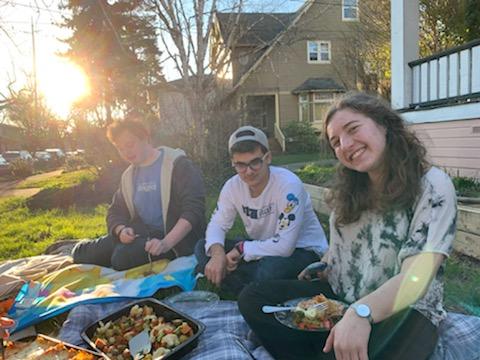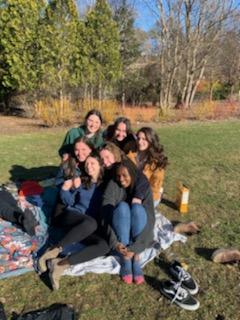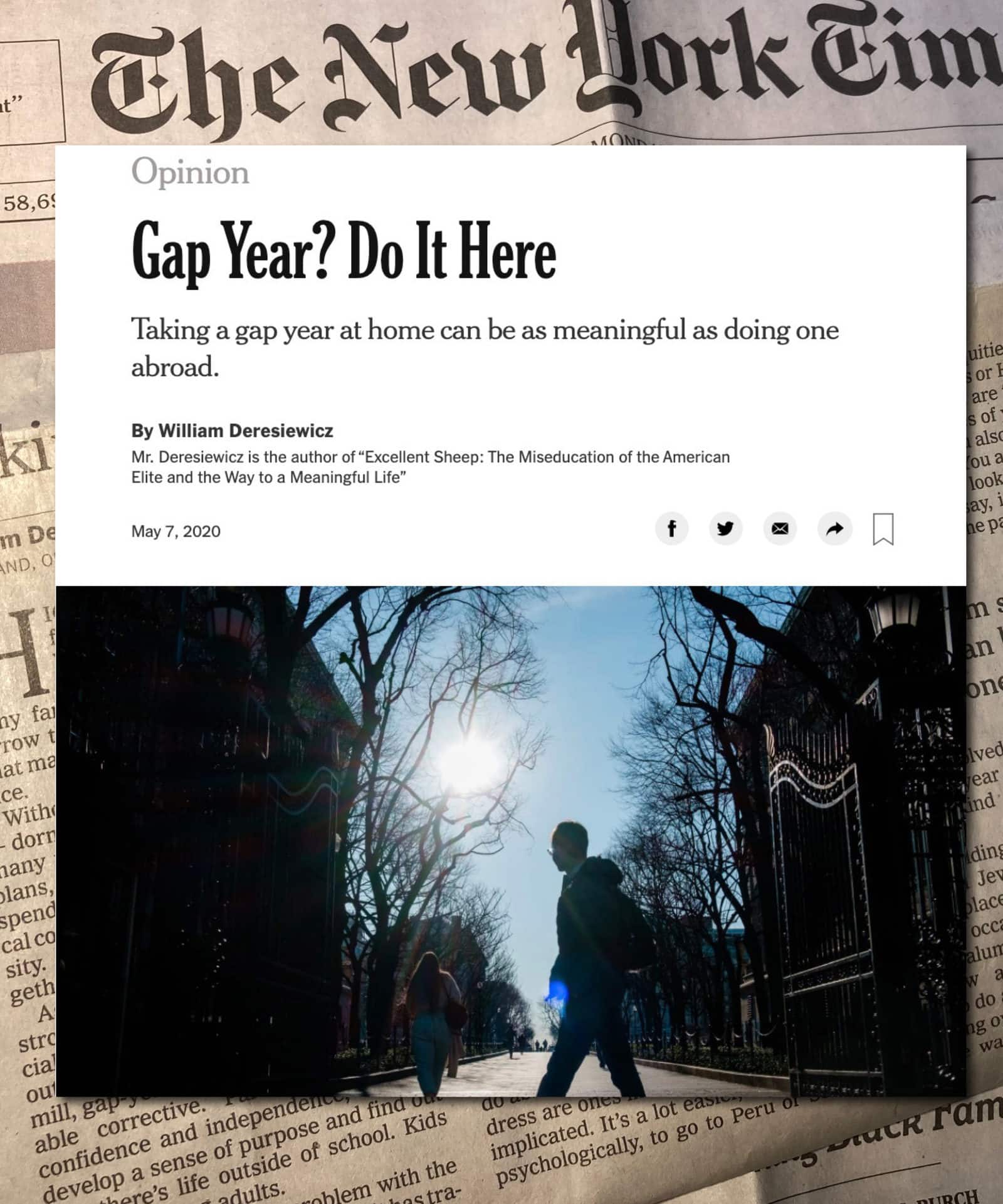This is Part 2 of a 3 part series written by Aliza Saunders, Tivnu alumna and student at Cornell University. During Tivnu, Aliza interned at Street Roots, Northwest Workers Justice Project, and Tivnu Construction. She is now a first-year student at Cornell University majoring in Design and Environmental Analysis.
The first semester of college is hard. And not many people tell you that.

While I can now say that I am incredibly happy at college that was not the case on August 28, as I unpacked my clothes in my 20 ft x 20 ft dorm room. Or even in early October, when I left the overcrowded dining hall after dinner overwhelmed, stressed, and on the verge of tears. It only took me about six weeks to feel comfortable at school and I can confidently say that I mostly attribute my eventual ability to feel settled into college to my experience on my gap year before college.
Last year, I participated in Tivnu: Building Justice, a nine-month Jewish social justice gap year program that combines direct service work, nuanced educational programs, and Jewish communal living. Specifically, my work with a direct service organization and my participation in an intentional, communal living home gave me the experience and tools necessary to excel both socially and academically in college.
Part 2: Communication
Now that I can say that I’ve made some really good friends, thanks to the communal living during Tivnu and communication workshops, I also think of myself as a stronger, more intentional communicator and thus friend. At the beginning of the Tivnu gap year, we took part in a productive communication workshop, where we discussed and acted out appropriate ways to really listen (and not just respond) to others, as well as the importance of direct communication (instead of having the issues manifest and even be discussed with everyone except the person it involves). For the rest of the year, I was able to apply these concepts to my friendships during Tivnu.

Communal living is so fun and rewarding, but, of course, comes with its challenges: Whose dirty dish was left in the sink? Why is the TV volume full blast at midnight? At one point in the year, my friend and I got into a fairly big argument that was due mostly to the combination of months of living together and small things we each did that annoyed the other person. Instead of simmering in my anger, I decided to reach out to him and we planned to have an amicable discussion.
I was recently looking through my Tivnu things, and I found the piece of paper where I wrote my “speaking points.” Some words I included were intensity of emotions and impact, accountability, and boundary-setting – three concepts I learned about last year and have been developing ever since. Our conversation was successful, and it’s safe to say that we’ve made up. Through this interaction, as well as several other smaller disputes, I learned how to truly be a better communicator, both understanding what I need from certain situations and then articulating that directly to the person.
There’s a saying I learned last year, “make space, take space,” that encourages people who usually talk more to let others speak and for those who are usually quiet to talk more. This has proven incredibly helpful in my everyday conversations with my friends at school. Now, it’s mostly unconscious, listening fully and responding with my feelings and thoughts. Moreover, in slightly more heated conversations, I now feel more confident in sharing my opinions and knowing when to make sure my voice is heard and when to be okay with just listening.

One Shabbat evening this year, many friends and I were delving into what it means to be excited and why everyone is obsessed with “making it through” the semester, instead of enjoying themselves in the moment. With lots of people and lots of opinions, I made sure to share my thoughts. At the same time, I was totally okay with listening, and not speaking, for several minutes at a time. I learned how to balance expressing my voice (something I would sometimes just surrender in large groups before Tivnu) and listening to others.
Through Tivnu, I learned that it’s important to call people out on interrupting me and equally important to listen (and not immediately respond) to people talking to me. I’ve been able to push myself beyond what’s typically comfortable for me in conversations, ultimately allowing me to meet more people and become a better communicator in these conversations.
Check out Part 1 … Part 3 coming soon!
Follow Us
Sign Up For Updates
Taking a gap year in the US can be as meaningful as doing one abroad.
 Featured in The New York Times
Featured in The New York Times